How Much Do I Need to Start a Wine & Spirit Business? Complete Cost Breakdown
Table of Contents
1. Introduction
Starting a wine and spirit business can be a rewarding venture, but understanding the financial commitment required is crucial for success. The alcohol beverage industry offers multiple entry points with varying investment requirements—from low-cost online operations to premium physical establishments and everything in between.
This comprehensive guide breaks down the startup costs for four distinct business models in the wine and spirit industry. Whether you're looking to start small with minimal investment or planning to launch a significant operation with your own branded products, we'll provide detailed cost estimates and practical advice to help you plan effectively.
In this complete cost breakdown, we'll cover:
- Low-cost entry models with minimal upfront investment
- Standard physical retail store requirements and costs
- Large-scale distribution and wholesale operations
- Creating and launching your own branded products
- Licensing, legal requirements, and hidden costs
- Ongoing operational expenses to anticipate
- Funding options for different business models
2. Low-Cost Entry (Asset-Light Model)
The asset-light model allows entrepreneurs to enter the wine and spirit business with minimal upfront investment by leveraging existing infrastructure and focusing on specific niches.
2.1 Online Retail & Dropshipping
Starting an online wine and spirit store with dropshipping arrangements:
- Website development: £1,000-3,000 (e-commerce platform)
- Digital marketing: £500-2,000 (initial campaigns)
- Business registration: £100-300
- Licensing: £100-500 (varies by location)
- Initial inventory deposit: £1,000-3,000 (for samples/testing)
- Payment processing setup: £200-500
- Total estimated startup: £2,900-9,300
This model minimizes inventory risk by having suppliers ship directly to customers, though profit margins are typically lower.
2.2 Specialized Tasting Events
Organizing wine or spirit tasting events without a permanent location:
- Event licenses: £100-300 per event
- Sample inventory: £500-1,500 per event
- Venue rental: £200-1,000 per event
- Marketing materials: £200-500 per event
- Glassware & equipment: £300-800 (reusable investment)
- Insurance: £400-800 annually
- Total initial investment: £1,700-4,900
2.3 Subscription Box Service
Curated monthly subscription service featuring selected wines or spirits:
- Website & subscription platform: £1,500-4,000
- Initial inventory (3 months): £3,000-9,000
- Packaging materials: £500-1,500
- Brand development: £1,000-2,500
- Marketing budget: £2,000-5,000
- Legal & licensing: £800-1,500
- Total estimated startup: £8,800-23,500
The asset-light model allows entry into the wine and spirit business with as little as £3,000-10,000, focusing on niches that require minimal inventory and physical infrastructure.
3. Standard Physical Store
A traditional brick-and-mortar wine and spirit shop requires significant upfront investment but offers established business models and direct customer interaction.
3.1 Store Setup & Location Costs
Initial investment for a physical retail location:
- Lease deposit (3-6 months): £6,000-30,000
- Store buildout & renovation: £15,000-50,000
- Shelving & display units: £5,000-15,000
- Point of sale system: £2,000-6,000
- Security system: £3,000-8,000
- Signage: £1,500-4,000
- Initial store setup total: £32,500-113,000
3.2 Initial Inventory Investment
Stocking a diverse selection of wines and spirits:
- Wine inventory (500-1,500 bottles): £10,000-45,000
- Spirit inventory (200-500 bottles): £8,000-30,000
- Beer & specialty beverages: £2,000-8,000
- Accessories (glasses, openers, etc.): £1,500-4,000
- Total inventory investment: £21,500-87,000
3.3 Additional Startup Requirements
Other essential costs for launching a physical store:
- Business license & permits: £1,000-3,000
- Alcohol licensing: £1,500-7,000 (varies by location)
- Insurance (first year): £2,000-5,000
- Initial marketing: £3,000-8,000
- Working capital (3 months): £15,000-40,000
- Additional startup costs: £22,500-63,000
3.4 Total Physical Store Investment
| Component | Low Estimate | High Estimate |
|---|---|---|
| Store Setup & Location | £32,500 | £113,000 |
| Initial Inventory | £21,500 | £87,000 |
| Additional Startup Costs | £22,500 | £63,000 |
| Total Investment | £76,500 | £263,000 |
A standard physical wine and spirit store typically requires £75,000-250,000 in startup capital, depending on location, size, and inventory selection.
4. Large-Scale Distribution
Establishing a wholesale distribution operation requires significant capital but offers higher volume business and established brand partnerships.
4.1 Infrastructure & Equipment
Setting up distribution infrastructure:
- Warehouse space (annual lease): £20,000-80,000
- Delivery vehicles (1-3): £30,000-90,000
- Warehouse equipment (shelving, forklift): £15,000-40,000
- Climate control system: £10,000-25,000
- Office setup: £5,000-15,000
- Total infrastructure investment: £80,000-250,000
4.2 Initial Inventory & Brand Partnerships
Securing inventory and distribution rights:
- Minimum opening orders (multiple brands): £50,000-200,000
- Brand partnership fees: £5,000-30,000
- Import licenses & customs bonds: £2,000-8,000
- Inventory management system: £5,000-15,000
- Total inventory investment: £62,000-253,000
4.3 Operational Setup
Additional costs for establishing operations:
- Business licensing & permits: £3,000-10,000
- Insurance (liability, vehicle, inventory): £8,000-20,000
- Staff training & recruitment: £5,000-15,000
- Marketing to trade customers: £10,000-30,000
- Working capital (6 months): £75,000-200,000
- Total operational setup: £101,000-275,000
4.4 Total Distribution Business Investment
| Component | Low Estimate | High Estimate |
|---|---|---|
| Infrastructure & Equipment | £80,000 | £250,000 |
| Initial Inventory | £62,000 | £253,000 |
| Operational Setup | £101,000 | £275,000 |
| Total Investment | £243,000 | £778,000 |
Large-scale distribution operations typically require £250,000-800,000 in startup capital, with significant ongoing investment in inventory and customer acquisition.
5. Building Your Own Brand
Creating your own wine or spirit brand represents the highest investment level but offers the greatest control and profit potential.
5.1 Product Development & Production
Costs associated with developing your own products:
- Product formulation & recipe development: £5,000-20,000
- Contract production (minimum runs): £20,000-100,000
- Custom bottle design & molds: £5,000-25,000
- Label & packaging design: £3,000-12,000
- Quality testing & certification: £2,000-8,000
- Total product development: £35,000-165,000
5.2 Brand Building & Marketing
Establishing your brand in the market:
- Brand strategy & positioning: £10,000-30,000
- Website & e-commerce platform: £5,000-15,000
- Professional photography & content: £5,000-15,000
- Initial marketing campaign: £20,000-60,000
- Trade show participation (2-4 events): £15,000-40,000
- PR & influencer outreach: £10,000-25,000
- Total brand building: £65,000-185,000
5.3 Sales & Distribution Setup
Establishing routes to market for your brand:
- Sales team or representative commission: £15,000-50,000
- Sample packages for buyers: £5,000-15,000
- Distribution agreements & slotting fees: £10,000-40,000
- Inventory for initial orders: £30,000-100,000
- Logistics & fulfillment setup: £8,000-20,000
- Total sales & distribution: £68,000-225,000
5.4 Total Brand Creation Investment
| Component | Low Estimate | High Estimate |
|---|---|---|
| Product Development | £35,000 | £165,000 |
| Brand Building | £65,000 | £185,000 |
| Sales & Distribution | £68,000 | £225,000 |
| Total Investment | £168,000 | £575,000 |
Creating your own wine or spirit brand typically requires £150,000-600,000 in startup capital, with significant additional investment needed for scaling and market expansion.
As a bottle manufacturer, we can significantly reduce your packaging costs for private label brands, with custom molds starting at just £1000-1400 and bulk pricing for orders over 10,000 units.
6. Licensing & Legal Requirements
All alcohol-related businesses face specific licensing and legal requirements that vary by location but represent necessary startup costs.
6.1 Alcohol-Specific Licensing
- Alcohol manufacturing license: £1,500-5,000+
- Wholesale distribution license: £1,000-4,000
- Retail alcohol license: £300-3,000 (annual)
- Import/export license: £500-2,500
- Special event permits: £100-500 per event
6.2 General Business Requirements
- Business registration: £50-300
- Tax registration: £0-200
- Health department permits: £100-500
- Fire department permits: £100-400
- Signage permits: £50-300
6.3 Insurance Requirements
- General liability insurance: £500-2,000 annually
- Product liability insurance: £1,000-5,000 annually
- Commercial property insurance: £800-3,000 annually
- Vehicle insurance (if applicable): £1,000-4,000 annually
- Workers' compensation: £500-2,000 annually
Total licensing, legal, and insurance costs typically range from £3,000-15,000+ annually, depending on business size and location.
7. Ongoing Operational Costs
Beyond startup investment, wine and spirit businesses face significant ongoing operational expenses.
7.1 Monthly Operational Expenses
| Expense Category | Low Estimate (Monthly) | High Estimate (Monthly) |
|---|---|---|
| Rent/Lease (retail or warehouse) | £1,000 | £10,000 |
| Utilities | £300 | £1,500 |
| Staff Salaries | £2,000 | £15,000 |
| Inventory Restocking | £3,000 | £50,000 |
| Marketing & Advertising | £500 | £10,000 |
| Loan Repayments | £500 | £5,000 |
| Total Monthly Expenses | £7,300 | £91,500 |
7.2 Additional Recurring Costs
- Credit card processing fees: 1.5-3.5% of sales
- Website hosting & maintenance: £50-500 monthly
- Software subscriptions: £100-1,000 monthly
- Professional services (accounting, legal): £200-2,000 monthly
- Vehicle maintenance & fuel: £200-2,000 monthly
- Unexpected expenses buffer: £500-5,000 monthly
Most wine and spirit businesses should prepare for 6-12 months of operating capital before expecting profitability.
8. Funding Options
Various funding options are available for launching a wine and spirit business at different scales.
8.1 Self-Funding & Bootstrapping
- Personal savings: Most common for small operations
- Home equity loans: Lower interest rates
- Retirement account borrowing: Risky but possible
- Credit cards: For very small startup costs only
- Friends & family loans: Common for early-stage businesses
8.2 Business Loans & Financing
- SBA or small business loans: £10,000-500,000
- Equipment financing: For specific purchases
- Inventory financing: Specifically for stock purchases
- Line of credit: Flexible ongoing access
- Merchant cash advances: Quick but expensive
8.3 Investor Funding
- Angel investors: £25,000-250,000
- Venture capital: £500,000+ for scalable concepts
- Strategic partners: Industry-specific investors
- Crowdfunding: £10,000-100,000 for consumer-focused brands
8.4 Grants & Alternative Funding
- Small business grants: Limited availability
- Industry-specific grants: For agricultural or craft producers
- Local economic development funds: For job creation
- Competitions & pitch events: Small amounts for validation
9. Frequently Asked Questions
Q: What is the cheapest way to start a wine business?
A: The most affordable entry points are online retail with dropshipping (£3,000-10,000), tasting events (£2,000-5,000), or becoming a broker/affiliate for existing brands (£1,000-3,000). These models minimize inventory risk and physical infrastructure requirements.
Q: How much profit can I expect from a wine store?
A: Well-run wine shops typically achieve 25-35% gross margins and 5-15% net profit margins. A store doing £300,000 in annual sales might generate £15,000-45,000 in net profit, though profitability often takes 1-3 years to achieve.
Q: Do I need special qualifications to start a spirit business?
A> While formal qualifications aren't always required, knowledge of products and regulations is essential. Many successful operators have WSET (Wine & Spirit Education Trust) certifications, industry experience, or hire knowledgeable staff. Licensing requirements vary by location but always include specific alcohol permits.
Q: How long does it take to become profitable?
A: Most wine and spirit businesses take 12-36 months to reach profitability. Online models may achieve profitability faster (6-18 months), while physical stores and own brands typically take longer (18-36 months) due to higher fixed costs and slower brand building.
Q: Can I start a alcohol business from home?
A: Regulations vary significantly by location, but most jurisdictions prohibit alcohol production or sales from residential properties. Some online models can be operated from home with proper licensing, but inventory typically must be stored in licensed facilities. Always check local regulations before planning a home-based alcohol business.
Final Thoughts
Starting a wine and spirit business requires careful financial planning across a spectrum of possible investment levels. From low-cost online models beginning at just £3,000 to full-scale brand creation requiring £500,000+, the industry offers opportunities for entrepreneurs at various commitment levels.
The key to success lies in matching your investment to your expertise, market opportunity, and risk tolerance. Many successful operators start with smaller, asset-light models and gradually expand into more significant investments as they establish market presence and operational experience.
Regardless of which path you choose, thorough research, understanding of regulations, careful financial planning, and a clear differentiation strategy are essential components for building a successful wine or spirit business. With the right approach and adequate preparation, the alcohol beverage industry can offer rewarding opportunities for passionate entrepreneurs.
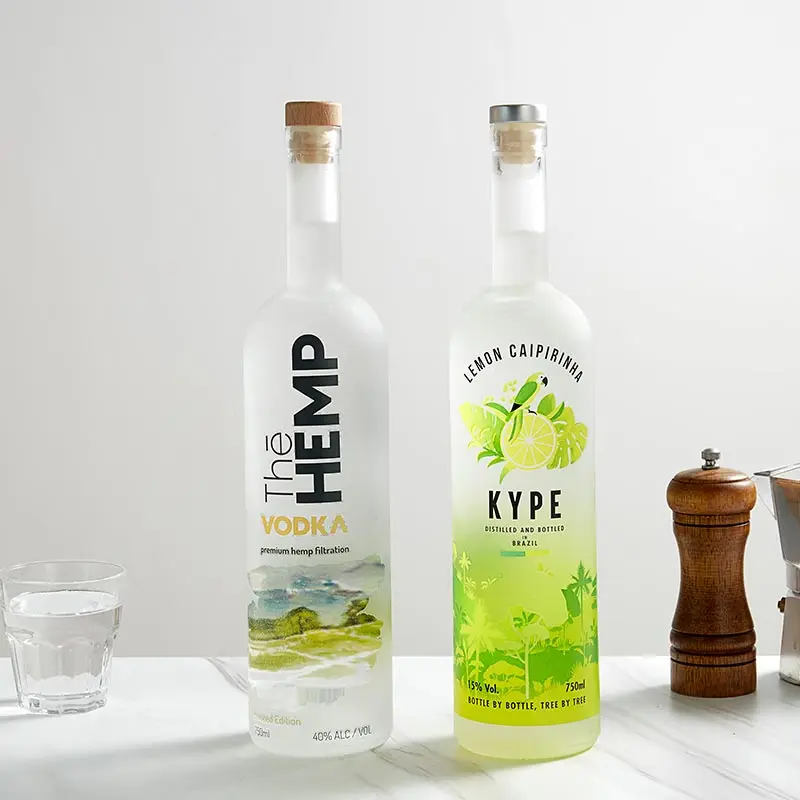
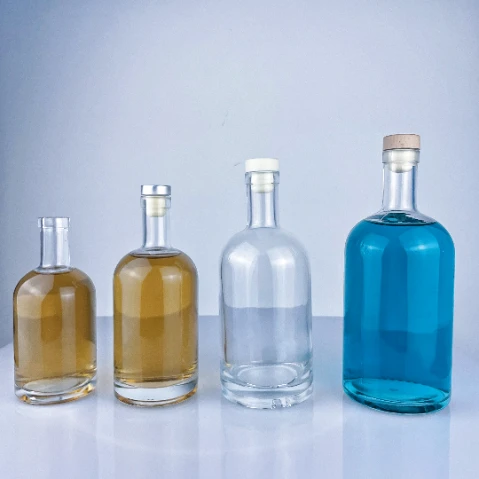
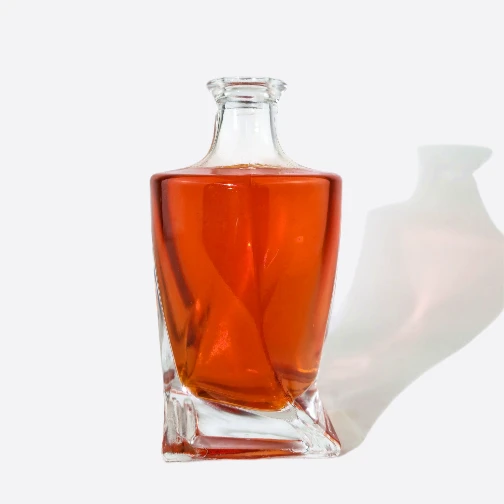
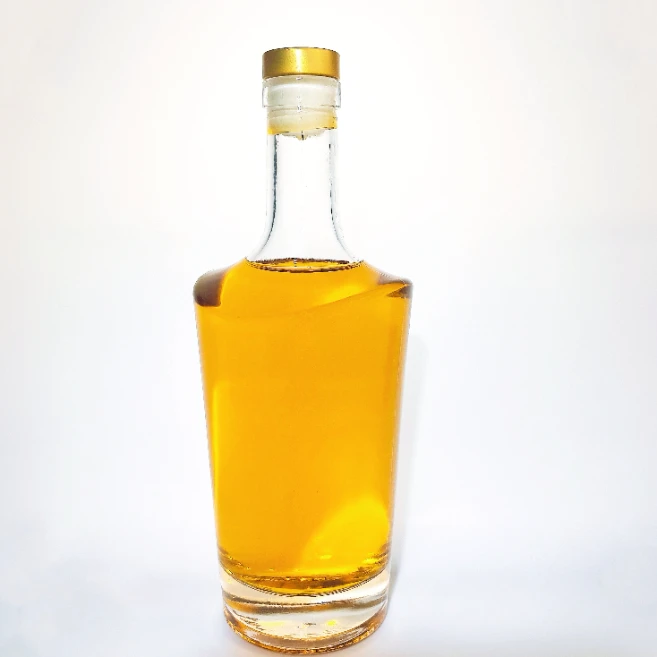
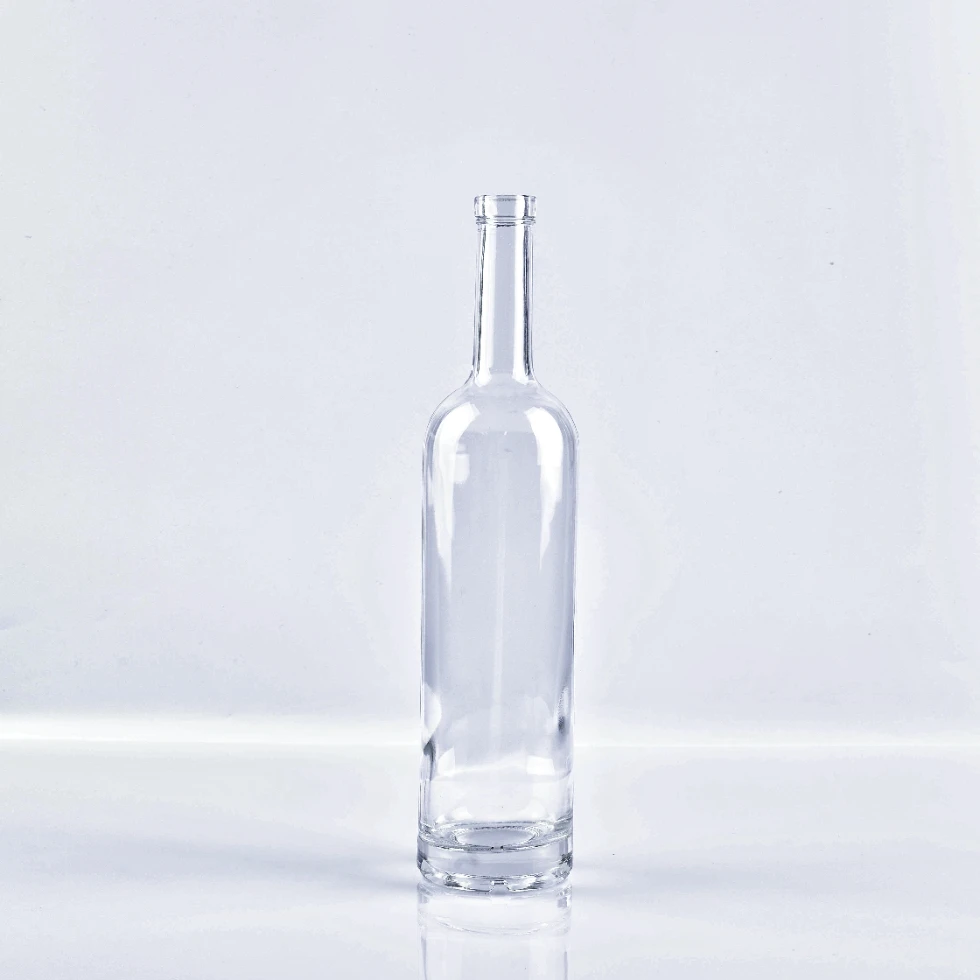
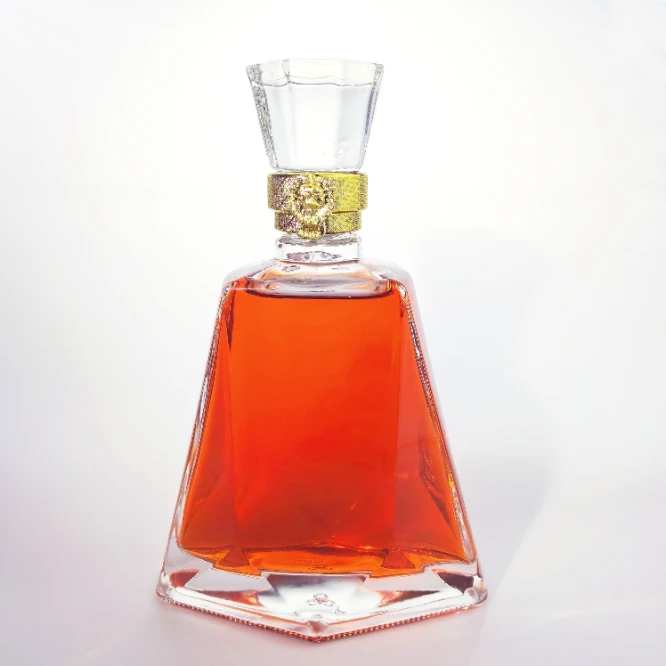
Glass Bottle Processing

Glass Bottle Spray Color

Glass Bottle Frost

Glass Bottle Decals

Glass Bottle Screen Print

Glass Bottle Embossing

Glass Bottle Metallization

Glass Bottle Hot Stamping
